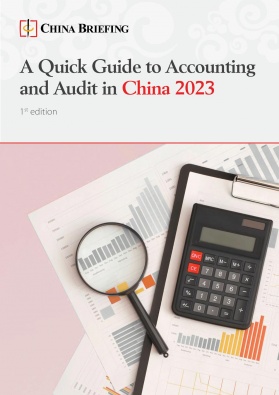Apostille Convention Officially Takes Effect in China on November 7
China has officially acceded to the Apostille Convention. On November 7, 2023, the Apostille Convention took effect in the country. This will save time and costs for companies and individuals, as foreign documents for use in China will no longer need to undergo multiple rounds of authentication by different authorities. We discuss how certain administrative procedures will be made simpler after China joins the Apostille Convention.
On March 8, 2022, China officially acceded to the Convention of 5 October 1961 Abolishing the Requirement of Legalisation for Foreign Public Documents, also known as the “Apostille Convention”. China acceded when the Chinese Ambassador to the Netherlands Tan Jian submitted the “instrument of accession” on behalf of China to the Ministry of Foreign Affairs in the Netherlands, the official custodian of the Apostille Convention.
According to the spokesperson of the Ministry of Foreign Affairs Mao Ning, who spoke on China’s accession in a press briefing on March 10, China’s accession to the Convention will “simplify the procedures for the transnational circulation of official documents and facilitate international economic, trade and personnel exchanges”.
The Apostille Convention wen into effect in China on November 7, 2023.
What is the Apostille Convention?
The Apostille Convention, or the Convention of 5 October 1961 Abolishing the Requirement of Legalisation for Foreign Public Documents, is an international treaty that simplifies the process of authenticating public documents for use in foreign countries.
The Convention was adopted by the Hague Conference on Private International Law (HCCH) in 1961, and it has since been ratified by over 120 countries and territories worldwide, including Hong Kong and Macao. Under the Convention, a public document that has been issued in one member country can be certified for legal use in any other member country by obtaining an “apostille” certificate from a competent authority designated by the issuing country.
The apostille is a form of authentication that verifies the authenticity of the signature, the capacity in which the person signing the document acted, and, where appropriate, the seal or stamp attached to the document. It eliminates the need for further certification or legalization by consular or embassy officials, simplifying the process and saving time and costs for those who need to use foreign public documents for legal purposes.
Currently, in order to use foreign documents in China for administrative purposes ranging from applying for a visa to establishing a business, they need to first be notarized and authenticated by local parties and then be further authenticated by the Chinese embassy or consulate in the country in which the documents are issued. This is both expensive and time-consuming for the applicant.
What does China’s accession mean for foreign trade and business?
According to spokesperson Mao Ning, China’s accession to the convention “will bring two major dividends”: reducing time and economic costs of cross-border circulation of documents and optimizing the business environment.
For both foreign and Chinese citizens, this means easier and faster applications for various documents, such as criminal records, healthcare certificates, driver’s licenses, degree certificates, and birth certificates, that may be required for various administrative tasks.
Mao Ning stated that after joining the convention, the time for an individual to complete the preparation of a document to be used abroad will be reduced from about 20 working days to just a few. In addition, it is estimated to save over RMB 300 million (approx. US$43.6 million) in processing fees for Chinese and foreign workers every year. In addition, the average time for document transfer between contracting states has been reduced by around 90 percent.
In terms of optimizing the business environment, the change will be the most beneficial for companies that frequently have cross-border dealings, whether that is domestic companies hiring foreign employees, import-export businesses, or multinationals with cross-border operations.
For HR departments, this will mean more streamlined and faster procedures for applying for visas and work permits for foreign staff.
Meanwhile, applying for a business license or company registration in China will also become easier for foreign companies, as the various forms of documents required, such as articles of incorporation, bank statements, and certificates of status now only need to be apostilled.
In the press meeting, Mao Ning estimated that around 70 percent of commercial documents required for import and export with China will be covered by the Apostille Convention and therefore no longer require consular certification.
Which documents does the Apostille Convention apply to?
Not all types of documents are covered by the Apostille Convention – only public documents, as determined by the laws of the issuing country. According to the HCCH, the convention is usually applied to:
- Documents of an administrative nature, including birth, marriage, and death certificates;
- Documents emanating from an authority or an official connected with a court, tribunal, or commission;
- Extracts from commercial registers and other registers;
- Patents;
- Notarial acts and notarial attestations (acknowledgments) of signatures; and
- School, university, and other academic diplomas issued by public institutions.
In addition, the HCCH says that the convention generally does not apply to diplomatic or consular documents, as well as certain administrative documents related to commercial or customs operations.
This means that certain customs documents for China may still require additional authentication procedures.
The other contracting states of the Apostille Convention will now have a six-month period in which to object to China’s accession. However, if a contracting state objects to China’s accession, it will only mean that the convention will not apply between China and that state, not that China will not be able to accede.
For that reason, it is still possible that the apostille procedures cannot be used in China for documents from certain countries, even if they are members of the Apostille Convention, and vice versa.
Considerations for document legalization after November 7
With the Apostille Convention officially taking effect on November 7, 2023, documents leaving and entering in China in principle will no longer require additional legalization, and will only need an Apostille Certificate from the document’s country of origin.
This was reaffirmed by Foreign Ministry spokesperson Wang Wenbin in a regular press briefing on the day the convention took effect, stating that “From today on, official documents sent between China and other contracting countries for use require only an Apostille Certificate issued by the countries they come from”. He added that “Consular authentication is no longer required”.
The Ministry of Foreign Affairs (MFA) will be the authority responsible for managing Apostille Certificates and issuing them for public Chinese documents for use abroad. Local foreign affairs offices may be entrusted by the MFA to do this work within their jurisdictions as well.
According to Wang, the MFA and local foreign affairs offices had already held ceremonies for the issuance of the first Apostille Certificates on the morning of November 7, signaling the official start of these procedures.
However, legal professionals have noted that authorities handling documents related to foreign investment in China may not accept apostilled documents straight away, and will require time to adjust to the new rules.
For instance, legal professionals at the law firm Squire Patton Boggs consulted the State Administration of Market Regulation (SAMR), China’s market regulator, on its ability to accept apostilled documents relating to corporate registration and foreign investment, but were told that they still require consular legalization by Chinese embassies or consulates. This is because the agency has still not updated its rules on document legalization, which could take another one to two months.
They conclude that “Due to the pending SAMR rules, we expect that registrations of foreign investment into China may be delayed until an apostille certificate becomes acceptable to SAMR and its local counterparts”.
Foreign companies that are in the process of submitting foreign documents to SAMR or other Chinese authorities should therefore take into consideration potential delays for document acceptance, and should also consult the agencies in question on whether documents will still require consular legalization.
Improving ease of doing business in China
Looking from a macro perspective, China’s accession to the Apostille Convention forms part of China’s wider efforts to improve ease of business and reduce red tape in the country.
The former Premier Li Keqiang launched a campaign called fangguanfu 放管服 in 2013, which sought to reduce administrative red tape and delegate more decision-making abilities to lower-level governments. This campaign has led to the reduction in administrative burdens through amendments and abolishment of various rules and regulations over the years, as well as devolving certain powers to local governments.
Although this was one of former Premier Li Keqiang’s flagship policies, it appears the Chinese government is still committed to the cause. In October 2022, the Office of the State Council published a plan detailing a list of tasks for improving the business environment under the fangguanfu campaign. This included curbing the abuse of administrative power to restrict market access, reducing local protectionism, removing unreasonable restrictions on bidding and procurement for non-local enterprises, reforming customs clearance, and promoting online customs clearance procedures, among many others.
This article was originally published on March 21, 2023, and last updated on November 15, 2023.
About Us
China Briefing is written and produced by Dezan Shira & Associates. The practice assists foreign investors into China and has done so since 1992 through offices in Beijing, Tianjin, Dalian, Qingdao, Shanghai, Hangzhou, Ningbo, Suzhou, Guangzhou, Dongguan, Zhongshan, Shenzhen, and Hong Kong. Please contact the firm for assistance in China at china@dezshira.com.
Dezan Shira & Associates has offices in Vietnam, Indonesia, Singapore, United States, Germany, Italy, India, and Russia, in addition to our trade research facilities along the Belt & Road Initiative. We also have partner firms assisting foreign investors in The Philippines, Malaysia, Thailand, Bangladesh.
- Previous Article Company Supervisors in China – Obligations, Liabilities and Legal Requirements
- Next Article China 2023 October Economic Roundup: Retail Sales and Factory Output Exceed Expectations








